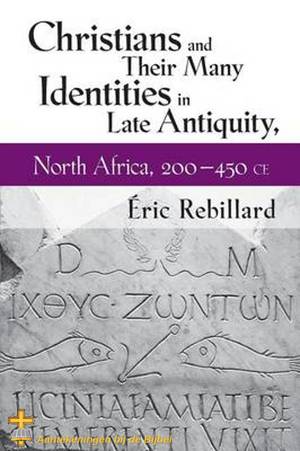
welke resulteren in allerlei aantekeningen.

For too long, the study of religious life in Late Antiquity has relied on the premise that Jews, pagans, and Christians were largely discrete groups divided by clear markers of belief, ritual, and social practice. More recently, however, a growing body of scholarship is revealing the degree to which identities in the late Roman world were fluid, blurred by ethnic, social, and gender differences. Christianness, for example, was only one of a plurality of identities available to Christians in this period. In Christians and Their Many Identities in Late Antiquity, North Africa, 200-450 CE, Eric Rebillard explores how Christians in North Africa between the age of Tertullian and the age of Augustine were selective in identifying as Christian, giving salience to their religious identity only intermittently. By shifting the focus from groups to individuals, Rebillard more broadly questions the existence of bounded, stable, and homogeneous groups based on Christianness. In emphasizing that the intermittency of Christianness is structurally consistent in the everyday life of Christians from the end of the second to the middle of the fifth century, this book opens a whole range of new questions for the understanding of a crucial period in the history of Christianity.
| Titel | Christians and Their Many Identities in Late Antiquity, North Africa, 200-450 CE |
| Auteur | Éric Rebillard |
| Uitgever | Cornell University Press |
| Jaar Verschenen | 2017 |
| Taal | en |
| Pagina's | pp. 144 |
| ISBN13 | 9781501713576 |
| Onderwerp | Christenen |

Zie de huisregels welk commentaar wordt opgenomen!